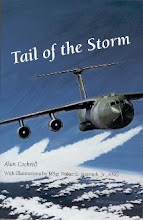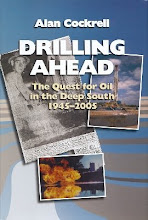Our government has come to our rescue again. They've passed a new law. Have you heard? They will now fine the airlines up to $27,500 per person if they strand you on the tarmac over three hours. My, how they look after our best interests.
Fearing they my have to shell out about $3 million bucks for each of their planes that sit off-gate for more than three hours, the airlines will surely establish two hours as the cut-off for bringing a plane back to the gate. That means that some gates must be held vacant, which means fewer gates will be available for normal operations, which means schedules must be reduced, especially during the stormy summer. (Ah, let's see, that's the time of year you travel the most, eh?)
So, when the plane goes back to the gate more fuel has to be boarded. That's more expense. Where will the airline make up that lost revenue?
Also, some passengers will inevitably want to get off. That will take more time and personnel services. And while all this is happening, you look and see the plane that was in line behind you taking off! And it's not even three hours yet! That could have been your plane. But, the government knows best, so don't fret.
Finally, your plane has its fuel load back. Your crew has their new paperwork, and hopefully, the return to the gate has not caused them to reach their duty time limit for the day. You push back. Now, do you think Ground Control sends you to the front of the line-up? You know better that to think that. But your government knows what's best for you, so relax. Write your congressman and tell him/her we need still more rules to protect passenger rights.
How has this all played out for me in the past? Here are three snippets, the first one was a classic goat-rope, much like the scenario I just described. The other two are the way it's supposed to be done. First the goat-rope.
LaGuardia: Thunderstorms blocked almost all the departure corridors. LaGuardia is not big―they have to be creative about lining up planes. The line-up looked like a rope doubled back on itself about five times. But, I wisely discerned, the hold area was west of our gate, while the departure runway was east of us. It didn't make much sense to me to waste fuel getting in the back of that winding line because we would eventually taxi right past our gate on the way out to the runway.
We managed to get Ground Control's attention on the busy frequency and asked them to insert us in the line when our “theoretical” position in the line passed by our gate. To my surprise they said yes. The wait would be about two hours. I coordinated it with the company and they liked the plan. They wouldn't have to pay us if we stayed at the gate longer. But―a people's hero―I was.
The time went slowly by. At two hours we called Ground Control and asked when we would be inserted into the line of planes inching by our gate. You guessed it. The deal was off. They sent us to the end of the line. Two more hours.
Salt Lake City: The weather in Denver was stormy. During our taxi out they gave us a one-hour delay. We pulled aside and shut down. I made an announcement. I flung open the cockpit door. I invited visitors up. I walked back through and greeted everybody, answered their questions. They like that. The hour went to two hours, with still no idea of when we might go. We were well past lunch time. I got on the PA. “Who wants to go back and grab a sandwich? We'll have to make it quick. Give me a show of hands.”
The plane voted to go back. There was no long line-up like in LaGuardia, so we were not in jeopardy of loosing our place. The station personnel were not too happy when I disgorged 120 people to raid the airport's lunch counters. The first officer sent word to me while I was out at the check-in counter. We were released. I grabed the handset and made an airport PA announcement. They came scurrying back. I helped the agents check boarding passes as the passengers filed back on board. We were off in less than 30 minutes. All happy.
San Diego: They told us to pull aside and wait. San Francisco was fogged-in. No estimate. I did my usual. Opened the cockpit, walked back. Chatted. The minutes turned to an hour. Then two. Two businessmen in first class told me they could no longer make their meeting in SFO so there would be no use now in their going. Could they get off? “Absolutely!” I said. Those guys were our bread and butter. I called station OPS and told them we were returning to the gate to disembark two passengers.
They said absolutely not. I asked why. Was a gate not available? Yes, they said. They had a gate, but they didn't have spare personnel to marshal us in and to operate the bridge. I politely said we were coming back. No, they unpoltely said. Can't do that. I politely said I was doing that. They protested more, but I was already underway back to the gate. I would see who would blink first in this stand-off. And I suspected a counseling session by my chief pilot was in the offing, but I pressed on.
When we got to the gate a marshaller met us. A bridge operator waited to attach it. I got off and apologized to him that our coming back necessitated him being pulled away from other duties. “No problem, man!” he exclaimed. “We were just all standing around up there. Nuthin' much going on right now.” The two businessmen went by, paused to shake my hand, smiling. They would be back to fly with us again. Thirty minutes later were were winging toward SFO. All happy. And no calls from the boss.That's the way it's done. We don't need no stinkin' new laws. We need crews to do their jobs.
What delay adventures have you experienced?
Quote of the post: "If an airplane is still in one piece, don't cheat on it. Ride the bastard down".
― Ernest K. Gann, The Black Watch, 1989
Thursday, May 6, 2010
Delay Tactics
Posted by
Alan C.
at
7:06 PM
![]()
![]() Labels:
delays,
passenger protection rules,
passenger rights
Labels:
delays,
passenger protection rules,
passenger rights
Subscribe to:
Comments (Atom)



